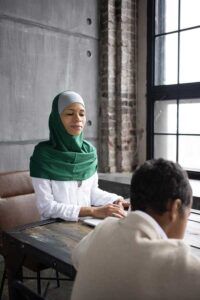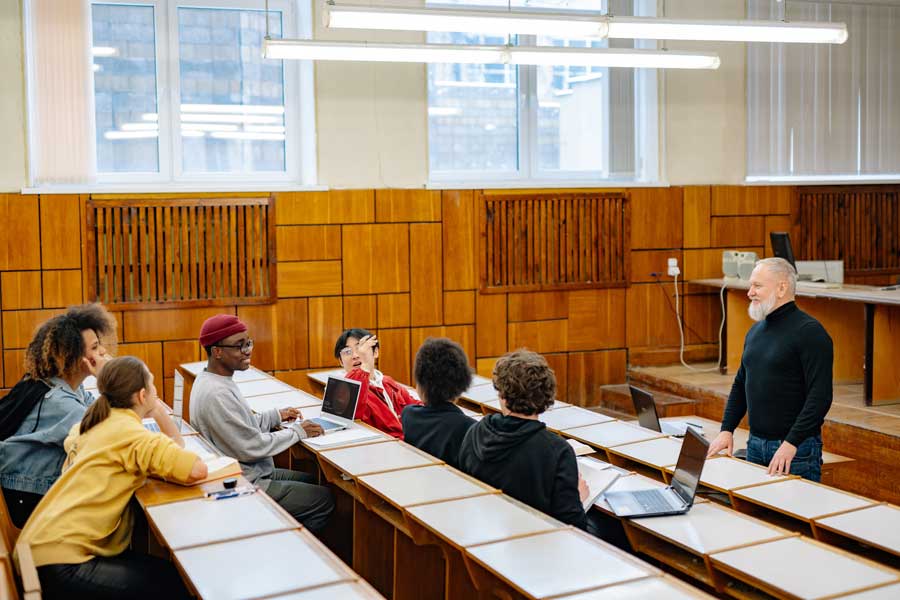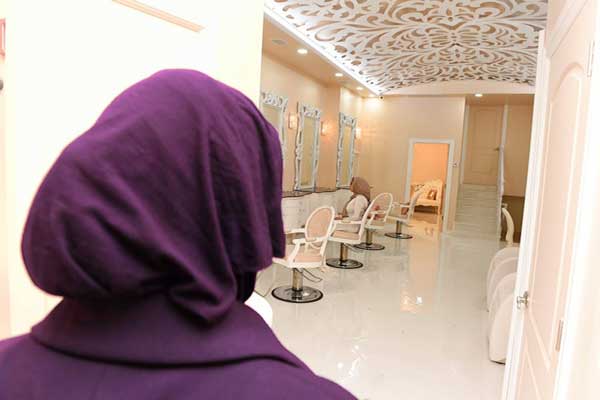As Muslim parents raising our children in a Western society that does not promote the values we wish to instill in our children, we must take it upon ourselves to facilitate environments and activities that nurture positive akhlaq (good character) as detailed in the Qur’an and exemplified by the Prophet (s). Akhlaq can only be engendered when it is prioritized and modeled in the home by the parents. We cannot just wish for positive Islamic character development in our children and hope it will somehow just appear. The truth is, this responsibility lies on our shoulders, and we will be asked about it on the Day of Judgment. So, how can we pave the path for our children to this character development?
First, it is paramount to internalize in ourselves that Islamic character building is a vital aspect of Islamic teachings. The development of a person’s moral and ethical values is considered foundational to a Muslim’s life and is viewed as an essential means to attain closeness to God. Islamic character education not only promotes moral excellence but also instills in individuals a sense of responsibility toward society and the world around them. Islamic character education seeks to develop in individuals the traits of honesty, integrity, compassion, kindness, patience, trust, and humility, among many others. These virtues are seen as critical in shaping an individual’s behavior, interactions with others, and their impact on the world — qualities we want to instill in our children. Muhammad Yusuf, in Character Education in Early Childhood: Perspectives, states that by cultivating such qualities, one is not only able to improve oneself and gain closeness to God, but also to make a positive contribution to the broader society. Thus, we are not only lighting the pathway to virtuous growth for our children but, in reality, helping to shape a more robust and better ummah in the light of the Qur’an and Sunnah. That, then, helps to bring greater goodness to the wider society.

The importance of Islamic character education lies additionally in its ability to provide individuals with a moral compass that guides them towards living a righteous and fulfilling life. This results by aligning their words and actions with the purpose of their life — pleasing God, gaining His love, and ultimately attaining Jannah. Prophet Muhammad (s) emphasized the importance of good character in numerous hadiths. For example, he said, “The most beloved of you to Allah is the best of you in character” (Tirmidhi). Evidently, the more we perfect our own character and facilitate this for our children, the further we successfully journey on the path of attaining our Lord’s love!
Akhlaq — Toward a Lifelong Spiritual Self-improvement
Mahfud and Kertamukti note that character education is morality, based on religious principles, that is instilled in students and children so that they act in accordance with the Qur’an and Sunnah. Additionally, Rustan and Akmal, writing in al-Balagh, a dawah journal, assert that Islamic character and moral education encourages individuals to adopt a positive outlook towards life, promotes a sense of purpose that goes beyond personal and instant gratification, develops a strong capacity for self-awareness, and works towards lifelong spiritual self-improvement. These values can be transmitted to our children through various methods, such as individual education, group education, opportunity education, and storytelling, notes Mumuni Thompson in Developing moral values in children: observations from a preschool. As Muslims, we must allow a warm and nurturing environment to facilitate a love for following the Prophet’s sunnah while simultaneously reminding them of their ultimate purpose of using their words and actions to attain Allah’s pleasure and love.
Ahmed and Rawash, in Embedding Islamic Values in Teachers Training Program: A Qur’anic Approach, illustrate some of the dimensions and values that should be instilled within children through education, both in school and in the home, in accordance with the Qur’an and Sunnah. These include, for example, fulfilling promises, staying away from greediness and arrogance, taking care of the needy, and many more. All of these values can be instilled in various ways based on the child’s development stage and the method you choose based on your experience of your child’s most natural and effective way of learning, internalizing, and understanding concepts.
Parents’ Role in Raising Pious Children
Parental bonds have been shown to influence religious development. In an extensive review of six years of literature, Benson, Donahue, and Erickson concluded that parents are one of the strongest influences on religiosity among adolescents. Hendra and Priadi, in Family Communication Model in Forming Pious Children, describe how they interviewed parents of pious children and found that the family communication model used in forming pious children was built on four foundations: 1) the intensity of family communication; 2) family communication patterns; 3) communication methods, and 4) methods of planting values. They emphasize the role of parents in raising pious children by nurturing and educating them, using appropriate methods to instill values in them.

Two schools in Indonesia employed specific strategies in order to instill character values in children in their early education. These strategies include habituation, exemplary behavior, assignment, and direction.
Habituation refers to the process of repeatedly practicing a behavior until it becomes a habit. In the context of character education, Rankin et al., writing in the journal, Neurobiology of Learning and Memory, note that this means encouraging children to practice positive behaviors until they become second nature. However, this must be accompanied by a pre-existing foundation of understanding, on the level of the child’s development, the importance of akhlaq in Islam and how the practice of good character brings one closer to God.
Exemplary behavior refers to modeling positive behaviors for children to emulate. Teachers and parents can demonstrate positive behaviors such as kindness, honesty, and respect and encourage children to follow their example. Modeling is one of the best ways for children to learn as they engage in observational learning.
Assignment refers to giving children tasks or activities that promote positive character traits. For example, children may be asked to perform good deeds and reflect on how that aligns with their values. This would also empower the children and encourage them to use reason, become independent thinkers, and engage in self-evaluation in order to improve their behavior. These positive traits help raise their self-esteem and self-efficacy.
Direction refers to providing guidance and support to children as they develop their character. Parents and other caregivers can offer feedback, encouragement, and advice to help children navigate challenges and make positive choices that reflect their Islamic beliefs, attitudes, and values.

Overall, these strategies are used to promote positive character development in young children and are integrated into the curriculum of the two schools studied and taught to the students’ parents to implement in the home. As parents, we can use these strategies as we deem appropriate for our children based on their developmental stage, aiming to cultivate akhlaq and a strong Islamic worldview in them. We must have sabr, both patience and perseverance, and see each day as a new opportunity to nurture our children and help support, encourage, and guide them by the mercy and will of Allah. May Allah SWT bless all our efforts to raise our children in accordance with the Qur’an and Sunnah. Ameen.





